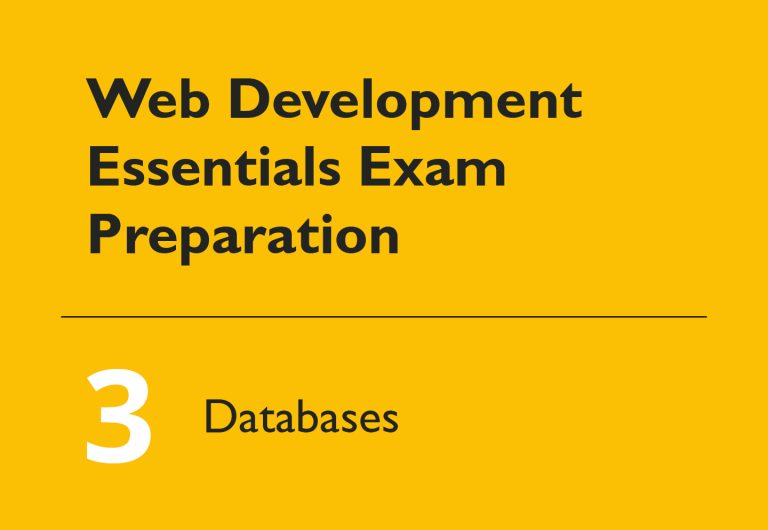How to Prepare for the Web Development Essentials exam, Part 3: Databases

This article finishes a series about the most recent addition to Linux Professional Institute certifications: Web Development Essentials. The first two parts introduced you to front-end and back-end programming. The last major technology you need to understand is a database.
Databases
Most applications deal with large amounts of data, which can’t feasibly be stored in the server’s memory or in files. Relational databases such as MySQL and PostgreSQL are nearly always found where a web service is running. A music site, for instance, can let a visitor search for music through composer, title, genre, or date, and serve up results from a database.
Relational databases accept requests through Structured Query Language (SQL). Although the details of the SQL differ from one database engine to another, the SQL you need for most web applications is very basic and works pretty much the same way on all databases. Searching for a combination of composer and title, or storing new information in a database, are basic operations.
For Web Development Essentials, you should learn SQLite, which can easily run on a laptop. You will encounter more full-featured databases in work environments, but what you learn using SQLite will transfer to them.
Programming languages and frameworks such as Node.js offer interfaces to let you send SQL to a database and interpret the results. For instance, if a search turns up 75 items, you can practice retrieving 10 items at a time and formatting them for display to the visitor. When you practice with databases, don’t think of just toy applications–you should work with large data sets to get an understanding of their requirements.
A well-rounded approach to web development
In the workplace, you will probably specialize in particular technologies, but you should understand what the Web offers and how large web sites work, from top to bottom.
We hope that this series of articles inspires you to consider Web Development Essentials and to master the skills listed here. You can learn the basic programming technologies for the Web without prior academic or professional training in programming. That makes web development an excellent place to start, if you want to pursue a career in computing. And as you go on to gain more academic and professional expertise, your knowledge of web development will continue to be relevant. Web development will be around for a long, long time.
As explained earlier, experience with real-life web sites is valuable for passing the test. But many resources are available in books, videos, and other sources for the material. We invite you to read LPI’s own Learning Materials for Web Development Essentials, which is currently available in nine languages.
